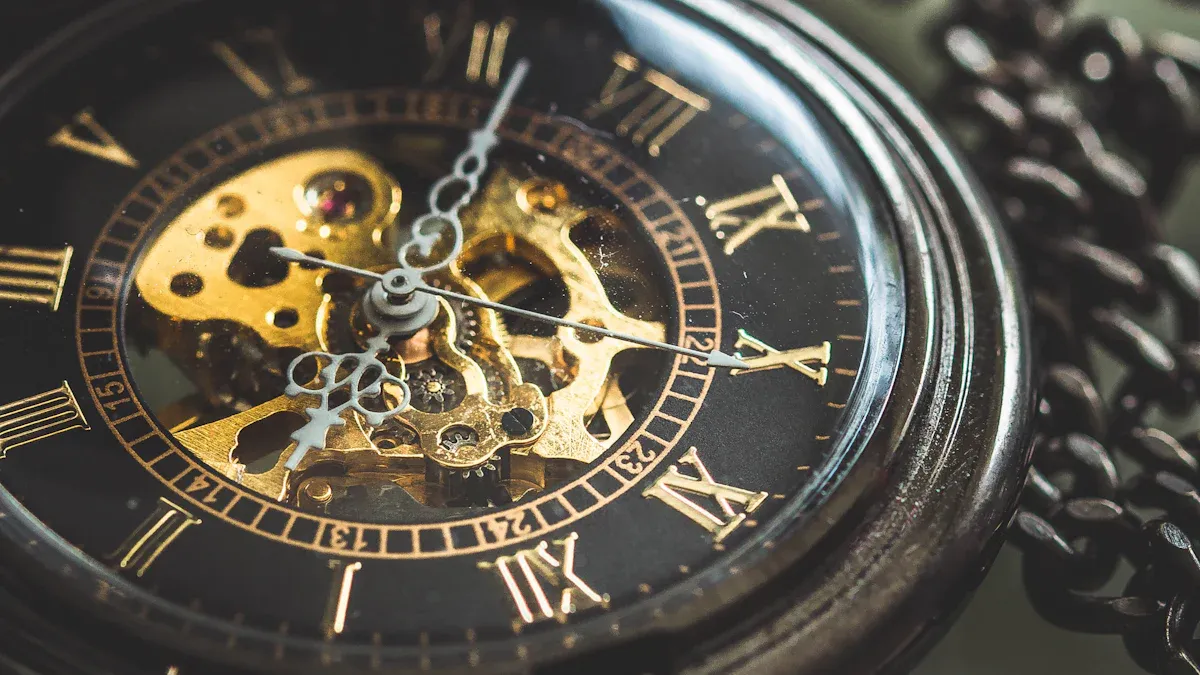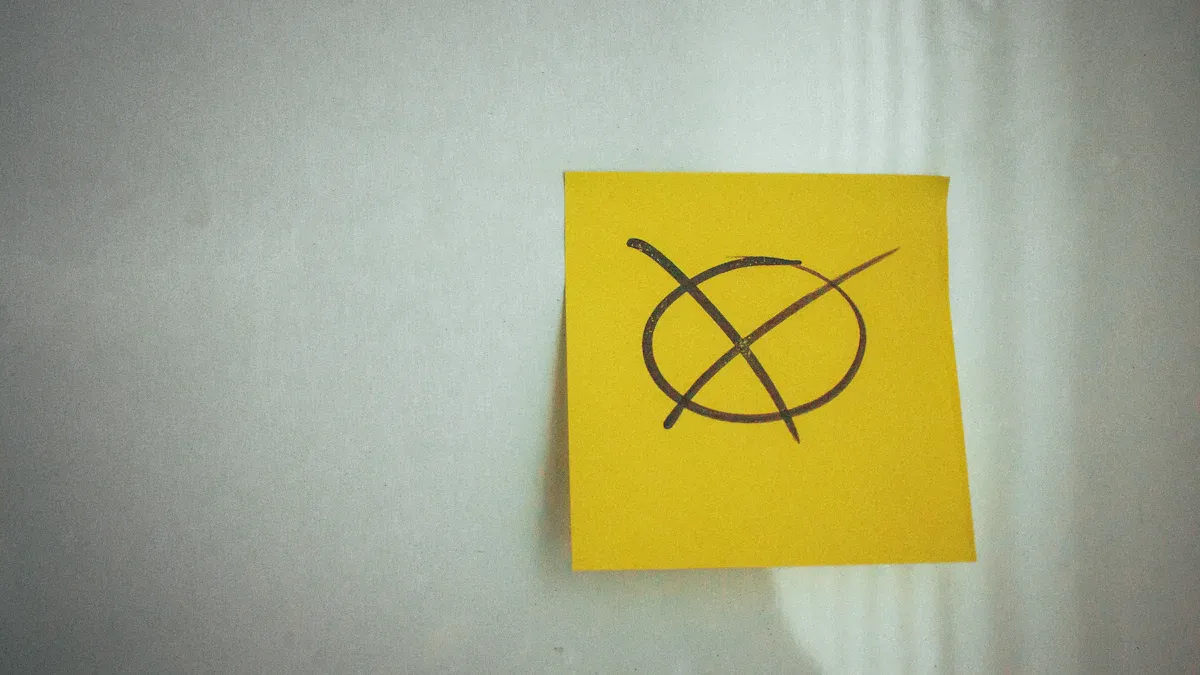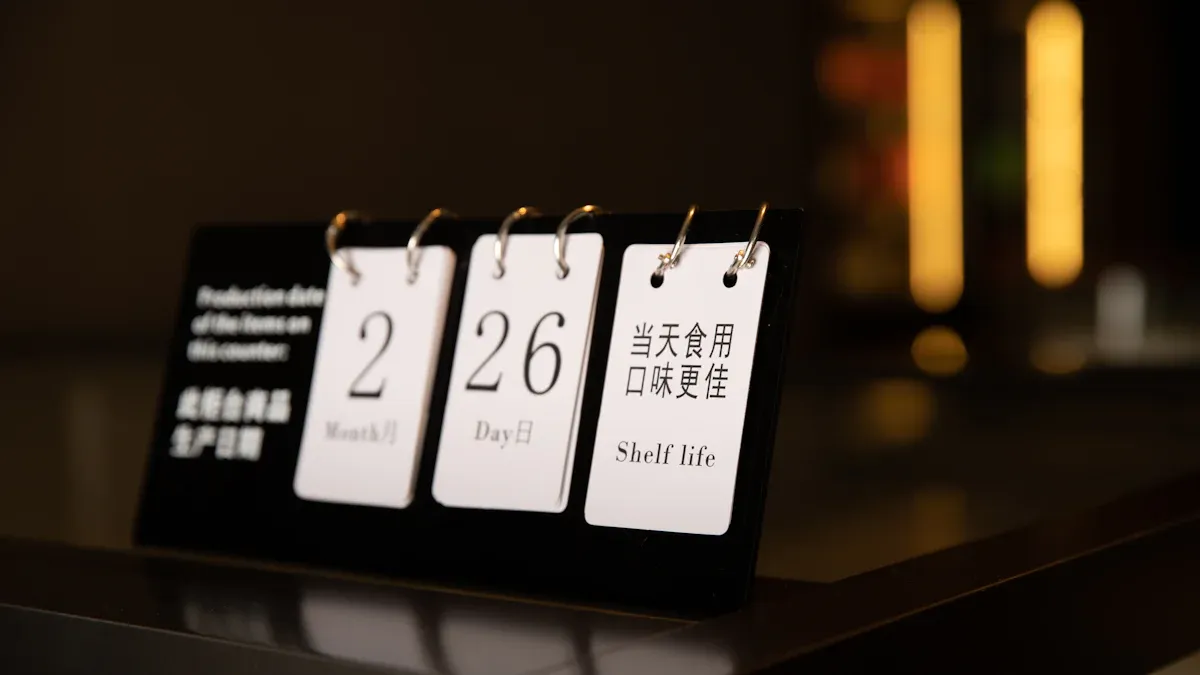- EasyCard
- Trade
- Help
- Announcement
- Academy
- SWIFT Code
- Iban Number
- Referral
- Customer Service
- Blog
- Creator
Are Checks Still Good After Six Months

Image Source: unsplash
You may wonder if you can still cash a personal check after some time. Checks are typically only valid for six months. Most banks treat checks as stale after that period, so you might have trouble depositing them. Some personal check issuers write “void after 90 days,” which shortens the time you have. Checks validity depends on the type. For example, a personal check may expire sooner if marked. If you hold onto checks too long, you risk losing your money.
Key Takeaways
- Most personal and business checks are valid for six months from the date written on them.
- Some checks say “void after 90 days,” so always read the check for special instructions.
- Banks can refuse to cash checks older than six months, and you may face fees or delays.
- If your check expires, contact the issuer to request a new one as soon as possible.
- Using electronic payments helps avoid delays, fraud, and expiration problems with checks.
Checks Validity and Expiration

Image Source: pexels
How Long Is a Check Good For
You might wonder how long is a check good for after you receive it. Most personal checks in the United States remain valid for six months, or 180 days, from the date written on the check. This rule comes from the Uniform Commercial Code (UCC) § 4-404. The UCC sets the standard for banks and helps everyone understand checks validity.
- Banks are not required to pay checks presented more than six months after the date on the check, except for certified checks.
- After six months, banks can refuse to honor the check, but they may still pay it if they believe it is safe to do so.
- If you try to cash a personal check after this period, the bank may bounce it and charge fees.
- Most major U.S. banks use this six-month timeframe for checks validity.
Note: Some checks, such as U.S. Treasury checks, have a longer validity period of one year. Cashier’s checks and money orders may have different rules, depending on the issuing bank.
You should always cash or deposit your checks as soon as possible. If you wait too long, you risk having the check marked as stale-dated. Once a check is stale, the bank can refuse to process it. This can cause delays and extra work for both you and the person who wrote the check.
Do Checks Expire
You may ask, do checks expire before six months? Sometimes, yes. Some checks include a printed message like “void after 90 days.” This means the check is only valid for 90 calendar days from the date on the check. After that, the bank may refuse to honor it.
- Banks often follow these shorter periods to avoid confusion or disputes.
- If you see a “void after 90 days” note, treat it as the final date for cashing or depositing the check.
- Even if the bank could process the check after this period, it is not required to do so.
Checks validity depends on both the UCC rule and any special instructions printed on the check. Always read the check carefully. If you see a shorter expiration period, act quickly. If you miss the deadline, you may need to ask the person who wrote the check for a new one.
Tip: To avoid problems, keep track of how long are checks good for and deposit them soon after you receive them. This helps you avoid fees and makes sure you get your money without trouble.
How Long Are Different Types of Checks Good For

Image Source: pexels
When you receive a check, you might wonder how long are different types of checks good for. Different types of checks have different expiration dates, and knowing these timelines helps you avoid problems when cashing or depositing them. The table below shows the official validity periods for the most common types of checks:
| Check Type | Official Validity Period | Notes |
|---|---|---|
| Personal and Business | 6 months (180 days) | Banks may refuse after this period, but some may honor at their discretion. |
| U.S. Treasury (Federal) | 1 year | Includes tax refunds, Social Security, veterans’ benefits; replacement available if expired. |
| State/Local Government | 6 months to 1 year | Varies by state; contact issuer for details or replacement. |
| Cashier’s Checks | 90 or 180 days, sometimes no expiration | Expiration depends on issuing bank; check for “void by” date. |
Personal and Business Checks
Personal checks and business checks are the most common types you will see. You usually have six months, or 180 days, to cash or deposit a personal check. This period is called the standard validity period. After six months, banks are not required to honor the check. Some banks may still process it, but they do not have to. If you try to cash a personal check after this time, the bank may reject it or charge a fee.
- Personal checks are valid for six months from the date written on the check.
- After six months, the check becomes stale, and banks can refuse it.
- Some personal checks have a note like “void after 90 days.” Even with this note, many banks still accept the check up to six months, but you should not rely on this.
- Business checks follow the same expiration timelines as personal checks.
If you ask, does a personal check expire, the answer is yes. Once the expiration date passes, you may need to ask the person who wrote the check for a new one. Always cash or deposit your personal check as soon as possible to avoid problems.
Government Checks
Government checks include payments from the U.S. Treasury, such as tax refunds, Social Security, and veterans’ benefits. These checks are valid for one year from the date issued. You will often see “VOID AFTER 1 YEAR” printed on the check. If you do not cash the check within this time, the Treasury will cancel it after 14 months. You can still request a replacement if your check expires, but you must contact the issuing agency.
State and local government checks have expiration timelines that vary. Most state checks are valid for at least six months, and some last up to one year. You should always check with the issuing agency to find out the exact period. If your state check expires, you can usually request a new one. The funds do not disappear, but you must act to get a replacement.
Cashier’s Checks and Money Orders
Cashier’s checks and money orders work differently from personal checks. The expiration timelines for these payment types depend on the issuing bank or company. Many cashier’s checks are valid for 90 or 180 days, but some do not have an expiration date. Always look for a “void by” date on the check. If you lose a cashier’s check or it expires, you may need to provide proof of purchase and wait for the bank’s process before getting a replacement. Some banks require a waiting period of up to 90 days to prevent fraud.
Money orders usually do not expire, but the issuer may charge monthly service fees if you do not cash them within a certain time. These fees can reduce the value of your money order. If you lose a money order, you can request a replacement, but you must show your receipt and pay a fee. Always cash money orders at the issuing institution to avoid extra steps or charges.
Note: How long are different types of checks good for depends on the type of check and the rules of the issuing bank or agency. Always read the check carefully and act quickly to avoid losing your money.
Cashing Old Checks
Bank Policies
When you try to cash or deposit old checks, banks follow certain rules. Most banks treat checks as stale if they are older than six months. You may find that banks have their own policies for handling these checks. Here is what usually happens:
- Banks often contact you if a check remains uncashed after 30 to 45 days. They want to know if you still plan to use the check.
- If the check is still outstanding after 90 days, the bank may start a stop payment. This can come with a fee.
- When you bring a stale check to the bank, the teller may ask for approval from the person who wrote the check. The bank will check if the account has enough money and if your ID matches the payee.
- Some banks may place a hold on the funds until the check clears. If the check does not clear, the bank can reverse the deposit.
- You may also face a fee for trying to cash a stale or expired check.
Note: Banks in Hong Kong and the United States have the right to refuse checks older than 180 days. However, some banks may still honor them if they believe the check is valid.
Potential Issues
Cashing old or expired checks can cause several problems. Banks do not have to accept checks past their expiration date, so you may not get your money. If you try to cash an expired check, you lose your legal right to enforce payment. This means you cannot force the bank or the person who wrote the check to pay you.
- If the account does not have enough money, the check may bounce. This can lead to overdraft fees for the person who wrote the check.
- Lost or stolen checks can lead to fraud. Someone could change the payee or the amount.
- Outstanding checks make it hard for both you and the issuer to keep track of money. This can cause problems with accounting and planning.
If you have an expired check, you should ask the issuer for a new one. Always cash or deposit checks as soon as possible to avoid these issues.
What to Do With Expired Checks
Contacting the Issuer
If you find yourself holding an expired check, you should act quickly. First, check your bank’s policy on stale checks. Some banks in Hong Kong or the United States may still process a check after six months, but most will not. If your bank refuses the check, you need to contact the person or company who wrote it. Tell them about the situation and ask for a new check. This is the first step in what to do if you have a dated check.
If you do not get a response, try these steps:
- Attempt to cash or deposit the check again after confirming the account has enough funds.
- If you still do not receive payment, write a formal letter to the issuer. Include the check number, date, and amount. Set a deadline for payment.
- As a last resort, you can take legal action, such as filing a claim in small claims court.
For government checks, like a tax refund, you may need to follow a special process. For example, if you have an expired check from the IRS, you should write a letter explaining the situation. Include the check number and your contact information. Mark the original check as “void” and mail it with your letter. You can also complete IRS Form 3911 to request a replacement. The process may take six to eight weeks.
Note: Unclaimed funds from uncashed checks may go to the state as unclaimed property after a few years. Always act quickly if you want your money.
Tips to Avoid Expired Checks
You can avoid problems with old checks by following a few simple tips. If you want to know what to do if you have a dated check, start by depositing it as soon as you receive it. This reduces the risk of the check expiring.
- Deposit checks promptly to avoid missing the six-month window.
- If you find a check that is close to expiring, contact the issuer before trying to cash it.
- Cancel lost or stolen checks right away to prevent fraud.
- Always read the check for any special instructions, such as “void after 90 days.”
- Keep track of all checks you receive and write down the dates.
Electronic payments can help you avoid the hassle of what to do if you have a dated check. These payments move money quickly and securely. They do not rely on mail delivery, so you do not have to worry about checks getting lost or delayed. Electronic payments also have lower risks of theft and fraud.
| Aspect | Paper Checks | Electronic Payments |
|---|---|---|
| Processing speed | Slow, subject to postal delays | Fast, often same-day or instant |
| Risk of loss or theft | High, checks can be lost or stolen | Low, digital and encrypted |
| Fraud risk | High, easy to alter or counterfeit | Low, secure protocols and monitoring |
| Expiration issues | Common, due to delays or lost checks | Rare, payments processed immediately |
By following these tips, you can avoid the stress of dealing with an expired check and make sure you get your money on time.
Most checks stay valid for six months, but some may expire sooner if marked. Always read your check for special instructions. You should cash or deposit checks as soon as possible to avoid problems. If you have an old or expired check, you can contact the issuer to request a new one. Many banks, including those in Hong Kong, offer mobile deposit options for faster processing.
- Cash or deposit checks quickly.
- Contact the issuer if your check expires.
- Use electronic payments when possible to avoid delays.
Keeping good records and acting fast helps you avoid fees and get your money without trouble.
FAQ
How can you tell if a check is expired?
Look at the date on the check. Most personal and business checks expire after six months. Some checks say “void after 90 days.” Always read any special instructions printed on the check.
What happens if you deposit a stale check?
Your bank may reject the deposit. Some banks might accept it, but you could face a fee. If the check bounces, you may need to ask the issuer for a new one.
Can you cash a check at any bank?
You can usually cash a check at the bank where the account is held. Some banks, including those in Hong Kong, may let you cash checks as a non-customer, but they might charge a fee.
What fees might you pay for cashing old checks?
| Bank Type | Possible Fee (USD) |
|---|---|
| Your own bank | $0–$15 |
| Other banks | $5–$20 |
| Check-cashing service | $10–$30 |
Fees depend on the bank’s policy and the check’s age.
Tired of worrying about check expiration, high fees, or the risk of fraud? With BiyaPay, you can transition to a faster, more secure way to manage your money. BiyaPay offers global transfers with fees as low as 0.5%, ensuring you keep more of your funds. Whether you’re sending money across borders or converting between fiat and digital currencies, BiyaPay supports most countries and delivers same-day transfers. Check real-time exchange rates to make informed decisions and avoid surprises. Say goodbye to the delays and risks of paper checks. Sign up with BiyaPay today and experience seamless, cost-effective global payments!
*This article is provided for general information purposes and does not constitute legal, tax or other professional advice from BiyaPay or its subsidiaries and its affiliates, and it is not intended as a substitute for obtaining advice from a financial advisor or any other professional.
We make no representations, warranties or warranties, express or implied, as to the accuracy, completeness or timeliness of the contents of this publication.




Contact Us
Company and Team
BiyaPay Products
Customer Services
is a broker-dealer registered with the U.S. Securities and Exchange Commission (SEC) (No.: 802-127417), member of the Financial Industry Regulatory Authority (FINRA) (CRD: 325027), member of the Securities Investor Protection Corporation (SIPC), and regulated by FINRA and SEC.
registered with the US Financial Crimes Enforcement Network (FinCEN), as a Money Services Business (MSB), registration number: 31000218637349, and regulated by FinCEN.
registered as Financial Service Provider (FSP number: FSP1007221) in New Zealand, and is a member of the Financial Dispute Resolution Scheme, a New Zealand independent dispute resolution service provider.



















